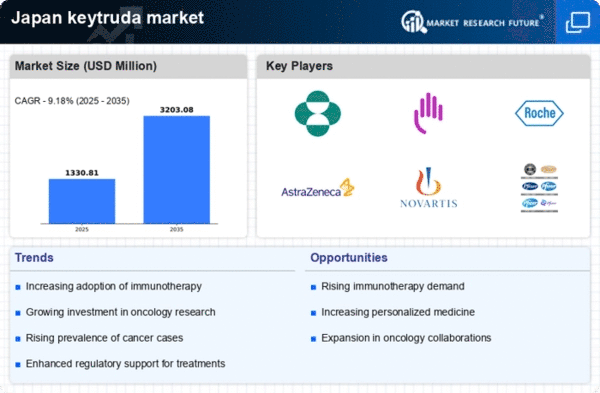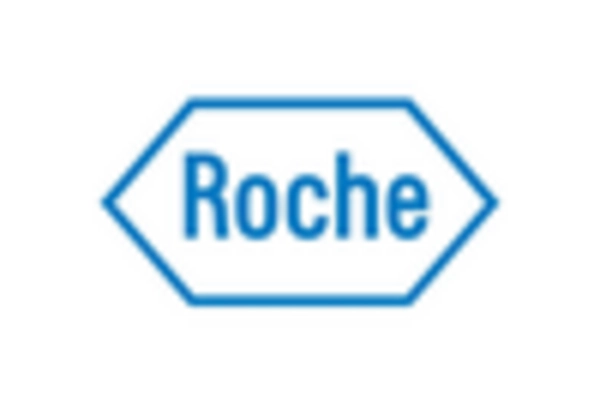Rising Incidence of Targeted Cancers
The increasing incidence of targeted cancers, such as melanoma and lung cancer, is a significant driver for the keytruda market in Japan. As the population ages, the prevalence of these cancers is expected to rise, leading to a higher demand for effective treatment options. In 2025, it is projected that lung cancer cases will account for approximately 20% of all cancer diagnoses in Japan, creating a substantial market opportunity for Keytruda. This trend underscores the necessity for innovative therapies that can address the specific needs of patients suffering from these malignancies, thereby driving growth in the immunotherapy sector.
Increasing Awareness of Immunotherapy
The growing awareness of immunotherapy among healthcare professionals and patients is a crucial driver for the keytruda market in Japan. Educational initiatives and campaigns have been instrumental in disseminating information about the benefits and effectiveness of immunotherapy treatments. As a result, more patients are seeking these therapies, leading to an increase in demand. In 2025, it is estimated that approximately 30% of oncologists in Japan are actively recommending immunotherapy options like Keytruda to their patients. This shift in treatment paradigms is likely to enhance the market landscape, as patients become more informed about their treatment choices and the potential benefits of immunotherapy.
Technological Advancements in Drug Development
Technological innovations in drug development processes are significantly impacting the keytruda market in Japan. The integration of artificial intelligence and machine learning in research and development has accelerated the identification of suitable candidates for immunotherapy. This has led to a more efficient drug discovery process, reducing timeframes and costs associated with bringing new therapies to market. In 2025, the Japanese pharmaceutical sector is projected to invest over $1 billion in R&D for immunotherapy, which could enhance the competitive landscape for Keytruda and similar products. These advancements may also lead to the development of combination therapies, further expanding treatment options for patients.
Growing Investment in Healthcare Infrastructure
The expansion of healthcare infrastructure in Japan is a vital driver for the keytruda market. Increased government and private sector investments in healthcare facilities and services are enhancing access to cancer treatments, including immunotherapy. In 2025, the Japanese government is expected to allocate approximately ¥500 billion to improve cancer care facilities, which will likely facilitate the distribution and administration of Keytruda. Enhanced infrastructure not only improves patient access but also supports the training of healthcare professionals in administering advanced therapies, thereby fostering a more robust market environment for immunotherapy.
Enhanced Regulatory Framework for Cancer Treatments
The evolving regulatory framework in Japan is likely to bolster the keytruda market. Recent reforms aimed at expediting the approval process for innovative cancer therapies have created a more favorable environment for immunotherapy products. In 2025, the Pharmaceuticals and Medical Devices Agency (PMDA) is expected to implement new guidelines that streamline the review process for immunotherapies, potentially reducing approval times by up to 30%. This regulatory support not only encourages pharmaceutical companies to invest in the development of new therapies but also enhances patient access to cutting-edge treatments like Keytruda, thereby driving market growth.
















